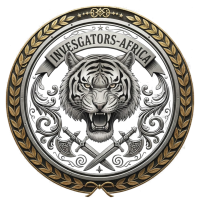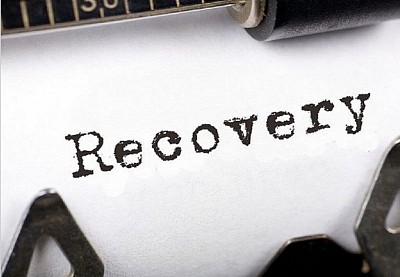Track, Trace, Confrontation and Recovery
Private investigators trace and track individuals
Using databases, public records, digital footprints, and physical surveillance, sometimes employing specialized tools like GPS tracking to locate missing persons, debtors, or individuals involved in legal matters. While they have access to resources beyond those of a private citizen, investigators must operate within legal and privacy boundaries, ensuring their methods are lawful and respectful of privacy rights.
Methods Used
• Database and Public Record Access: Investigators can access various databases and public records that are not available to the general public to find information and locate subjects.
• Digital Forensics and Footprints: They can uncover digital footprints by analyzing public social media profiles and other online presences to trace a person's activities and potential locations.
• Physical Surveillance: Involves following a person to verify their location and gather evidence.
• GPS Tracking: A tool that can track a vehicle's movements and provide evidence of a person's location.
• Interviews and Background Checks: Conducting interviews and thorough background checks helps build a comprehensive picture of a person's history and activities.
Network of Contacts: Investigators often leverage a wide network of contacts, including law enforcement agencies, community organizations, and other experts, to gain intelligence and locate individuals.
Why People Use These Services
• Missing Persons: To find family members, runaways, or individuals who have disappeared.
• Debt Recovery: To locate debtors who have absconded or are avoiding payment.
• Legal Matters: To serve summonses or gather evidence for cases, such as tracking witnesses.
• Personal Investigations: For personal reasons, such as verifying a spouse's activities or finding a lost business associate.
Key Considerations
• Legality: Investigators must adhere to federal and state laws regarding privacy and surveillance, ensuring their methods are lawful and not considered harassment.
• Privacy Rights: Respecting an individual's right to privacy is crucial, and illegal methods like eavesdropping can lead to criminal charges.
• Information Required: A successful trace depends on the information provided by the client. While a skilled agent can trace someone with minimal information, more complex cases require advanced techniques.
A private investigator (PI) can legally question a potential suspect but
Must be registered, identify themselves, and operate within the law, which means they cannot use excessive force, wiretap, or hack electronic communications. The individual being questioned has no obligation to speak to a PI and can report any illegal activity to the authorities.
What a Private Investigator Can or Can Not do during Confrontation
What a Private Investigator Can Do
• Question individuals: PIs can ask questions to gather information but cannot place anyone under duress.
• Identify themselves: They should produce an appointment card and identify themselves as a private investigator.
• Gather information: PIs are trained professionals in gathering evidence through surveillance, background checks, and other techniques.
What a Private Investigator Cannot Do
• Use excessive force: A PI cannot use unnecessary force, and physical confrontation should only occur if absolutely necessary and lawful.
• Engage in illegal activities: Unauthorized wiretapping, hacking, or intercepting electronic communications are illegal.
• Break the law: All PIs must operate within the same legal boundaries as ordinary citizens and cannot break the law to do their job.
• Make arrests: While any person in South Africa can make an arrest under certain circumstances, this is not an inherent power of a PI.
Therefore we believe to have a member of the South African Police Services present when we do Secure the Arrest.
If You Are Confronted
• Safety First: If a PI confronts you, prioritize your safety.
• Ask questions: You can ask them why they are following or confronting you.
• Report to police: If you believe the PI is crossing legal boundaries or acting illegally, you can report them to the authorities.
• Know your rights: You are not obligated to speak to a private investigator.
• Consider legal action: You may have grounds to issue a cease and desist letter if the conduct is harassing or unlawful.
Private investigators specialize in asset and fund recovery by
Using asset tracing and due diligence to identify hidden assets, often through forensic accounting, public record searches, and international networks of experts. This service is vital in cases of fraud, divorce, and debt recovery, helping clients locate and ultimately recover funds or property concealed through complex financial structures or across different jurisdictions.
Asset and Fund Recovery
What Asset and Fund Recovery Involves
• Asset Tracing: The process of identifying and locating assets that may not be immediately obvious or accessible.
• Due Diligence: Investigating individuals or companies to understand their complete financial position and identify any potential liabilities or hidden assets.
• Investigation: Gathering information about the target's financial activities, including public records, social media, and financial institutions.
How Private Investigators Conduct Recovery
• Forensic Accounting: Analyzing financial records and structures to uncover hidden assets or funds.
• Public Record Searches: Using databases and public information to identify property ownership, corporate records, and financial transactions.
• International Networks: Collaborating with local experts, lawyers, and forensic accountants in other jurisdictions to navigate different legal systems and recover assets.
• Digital Forensics: Investigating electronic records and data to trace financial flows and locate virtual assets like cryptocurrencies.
Why Asset Recovery is Necessary
• Legal Disputes: In cases like divorce or business disputes, asset tracing ensures fair settlement by locating all financial resources.
• Fraud and Crime: Recovering assets obtained through criminal activities, money laundering, or corruption.
• Debt Collection: Locating assets to satisfy outstanding debts owed to creditors.
• International Asset Recovery: Tracing and recovering assets that have been moved or hidden in other countries.
Key Stages of the Recovery Process
• Pre-Investigation: Verifying initial information and building a comprehensive profile of the target and their associates.
• Investigation: Conducting asset tracing to identify and locate assets, often involving cooperation with international authorities.
• Judicial Proceedings: Pursuing legal action, such as court orders, to freeze and confiscate assets.
• Asset Disposal and Return: Following legal proceedings, the recovered assets are returned to their rightful owners.







